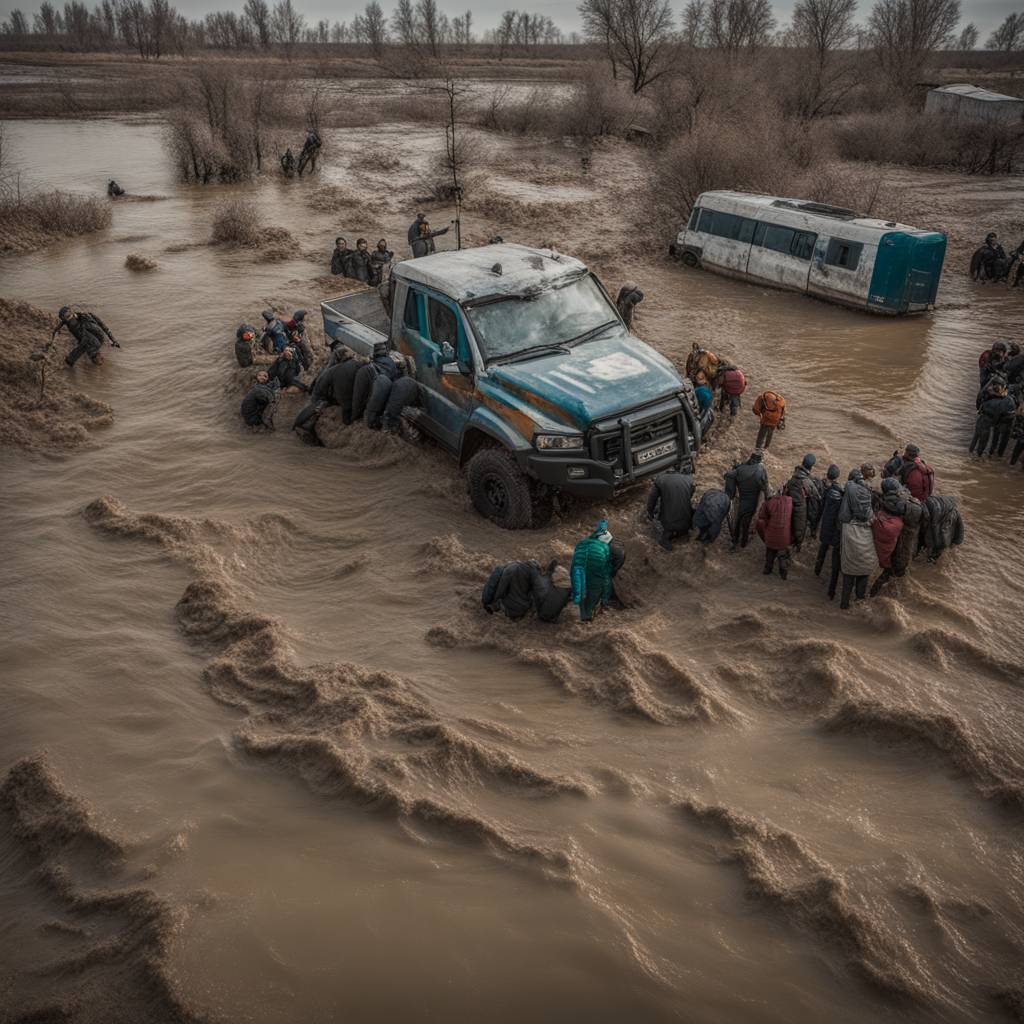Hundreds of Russians in the city of Orsk gathered in a rare protest calling for compensation following the collapse of a dam and subsequent flooding in the Orenburg region near the border with Kazakhstan. The floods, caused by rising water levels in the Ural River, forced over 4,000 people, including 885 children, to evacuate in the Orenburg region. Around 10,000 homes, including 7,000 in Orsk, were flooded, and floodwaters in the city are continuing to rise. The total damage from the flood in the region is estimated at about 21 billion rubles ($227 million), prompting the government to declare a federal emergency.
Following the protest, the governor of the Orenburg region, Denis Pasler, promised compensation payments of 10,000 rubles a month for six months to those forced out of their homes by the flood. However, a criminal probe has been launched to investigate suspected construction violations that may have caused the dam to break. The dam, which was supposed to withstand water levels up to 5.5 meters, reached levels of about 9.3 meters on Saturday morning, leading to the floods. Four people were reported dead in Orsk, although their deaths were unrelated to the flooding. The designation of the situation as a federal emergency reflects the risk of flooding beyond the Orenburg region.
Russian President Vladimir Putin had spoken with the heads of various regions to discuss the situation and the need for early adoption of measures to assist people and possible evacuations. The Ural River, about 1,509 miles long, flows from the southern section of the Ural Mountains into the north end of the Caspian Sea, through Russia and Kazakhstan. In the Smolensk region, part of an overpass collapsed in the town of Vyazma, west of Moscow, killing one person and injuring several others. The overpass fell onto railway tracks, cutting off almost 9,000 people from gas supplies and halting trains towards Belarus, with a criminal investigation opened by local officials.
Protests in Russia are a rare sight as authorities have consistently cracked down on dissent following President Putin’s invasion of Ukraine. Videos shared on social media showed people chanting “Putin, help us” and “shame” in front of the administrative building in Orsk. The situation in flood-hit areas of Orenburg was declared a federal emergency, with preparations for possible flooding underway in three other regions. The flooding caused widespread damage in the Orenburg region, with homes and fields being submerged in water. The massive floods in Orsk and Orenburg resulted in the loss of life and significant economic damage, leading to calls for accountability and compensation for those affected.
The governor of the Orenburg region pledged financial aid to those displaced by the flood, but questions remain regarding the structural integrity of the dam and potential construction violations. The criminal probe launched aims to investigate the root causes of the dam collapse and subsequent flooding, as well as to prevent such disasters from recurring in the future. The federal emergency declared underscores the severity of the situation and highlights the need for swift and effective response to assist affected individuals and communities. The tragic events in Orsk and other regions serve as a reminder of the importance of infrastructure safety and disaster preparedness in the face of natural disasters and unforeseen emergencies.













